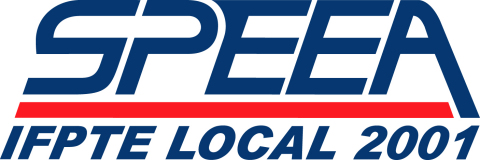SPEEA Alleges Retaliation in Boeing ODA Case
SPEEA Alleges Retaliation in Boeing ODA Case
Labor complaint to secure more information
SEATTLE--(BUSINESS WIRE)--Boeing Co. managers retaliated against two SPEEA union members who had been designated as representatives of the Federal Aviation Administration, after the union members insisted the company reevaluate prior engineering work on the 777 and 787 to account for a new FAA advisory.
That’s according to the union, which on April 18 filed a National Labor Relations Board (NLRB) complaint in order to get access to a report Boeing filed with the FAA about the incident. The report is needed for the union to successfully appeal actions taken against one of the affected workers; the other has quit Boeing over the way he was treated.
“Boeing can tell Congress and the media all it wants about how ‘retaliation is strictly prohibited,’” said SPEEA Director of Strategic Development Rich Plunkett. “But our union is fighting retaliation cases on a regular basis, and in this specific case, Boeing is trying to hide information that would shed light on what happened.”
Case involves ODA process
The FAA gives Boeing workers the ability to certify the company’s own work through a practice called Organization Delegation Authorization (ODA). Under this process, the FAA delegates some of its oversight authority to Boeing workers, who act on the FAA’s behalf while remaining on the Boeing payroll. The ODA practice has been scrutinized by Congress and was the subject of a study by an expert panel commissioned by the FAA, which delivered its report on Feb. 26.
That panel found that Boeing workers are reluctant to speak out about potential safety and quality problems, for fear of retaliation. The panel also found that Boeing workers are hesitant to use the company’s “Speak Up” process for a number of reasons, including the belief that their complaints wouldn’t be acted upon.
According to SPEEA, the two engineers involved in the complaint got at odds with Boeing managers in 2022, when they insisted on using a different set of assumptions in the analysis of the on-board computer networks on Boeing 777s and 787s, in order to comply with the new FAA guidance.
Boeing managers strongly objected, saying that going back to run calculations using the new assumptions would cost money and cause production delays. But the engineers, working under ODA authority on behalf of the FAA, held fast to their position that the re-work was necessary to comply with the agency’s new guidance.
After nearly six months of debate, the two engineers, with backing from the FAA, prevailed. Boeing re-did the required analysis.
“This is exactly how Congress intended the ODA process to work,” Plunkett said. “Working on behalf of the FAA, Boeing employees — who are experts in their field — go over the work that their colleagues have done to look for potential mistakes, and if there are mistakes, they make sure those are corrected.”
Union alleges retaliation
The two engineers were still Boeing employees, however, and Boeing management was not pleased. When they came up for their next performance reviews, the two engineers received identical negative evaluations. Those evaluations are critical, Plunkett said, because they are used at Boeing to determine raises, opportunities for promotions and potential risk for layoffs.
The two engineers contacted their union to appeal their evaluations. SPEEA staff met with Boeing Labor Relations representatives several times in an effort to correct what seemed to the union to be a clear case of retaliation. Even after the manager of the two engineers admitted that he had rated them both poorly at the request of the 777 and 787 managers who had been forced to resubmit their work, Boeing refused to change the engineers’ performance evaluations.
At this point, one of the engineers left in disgust; the other filed a formal “Speak Up” complaint with Boeing.
Because the complaint alleged retaliation against and interference with engineers working with ODA designation, Boeing was required to file a report about the Speak Up complaint with the FAA.
Boeing officials called the remaining engineer into a meeting, with a SPEEA representative present. They told the engineer that the company had filed the required report with the FAA. However, they said, the engineer’s complaint did not meet the legal threshold of interference, nor the legal definition of retaliation, and as a result, they were closing his case.
Boeing denied information request
SPEEA is still pursuing the engineer’s appeal of his negative performance review.
As part of that, SPEEA sought access to the report given to the FAA. Boeing refused, even though U.S. labor law generally gives unions access to the documents they need to appeal adverse actions taken by an employer against a union member. SPEEA’s April 18 filing of an Unfair Labor Practice charge with the NLRB seeks to force Boeing to turn over the report to the FAA.
This case is an example of what Boeing workers face when they push for safety and quality, Plunkett said. “Whether it’s capital R ‘Retaliation’ or not, the fact remains that the two ODA-designated SPEEA members did the right thing and stuck to their guns despite heavy pressure from Boeing, and then got hit with career-damaging performance reviews. This helps show why Boeing doesn’t have a healthy safety culture.”
For a copy of the union’s Unfair Labor Practice complaint against Boeing in this case, click here for the link.
SPEEA represents more than 19,000 engineers, scientists, pilots and technical workers at Boeing in Washington, Kansas, California, Oregon and Utah and Spirit AeroSystems facilities in Kansas.
Contacts
Media contacts:
SPEEA Director of Strategic Development Rich Plunkett – (206) 674-7366
SPEEA Senior Communications Specialist Bryan Corliss – (425) 327-3512
